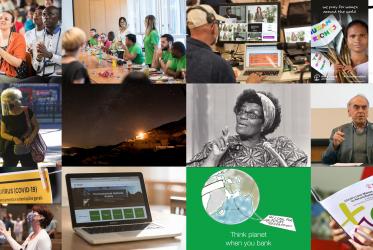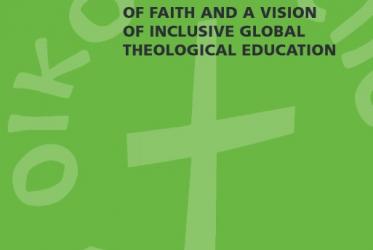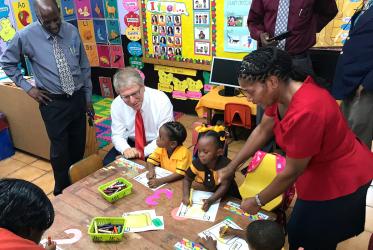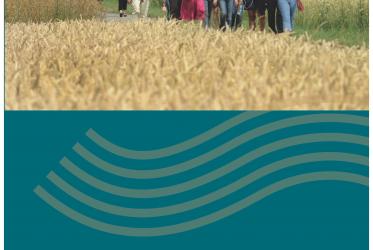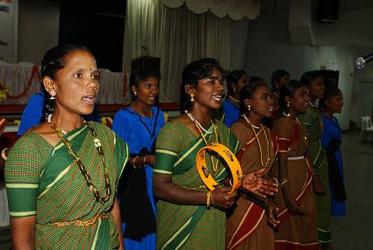Displaying 1 - 18 of 18
"Out of the Shadows" toolkit now available in French and Spanish
20 January 2022
Plans for 11th WCC Assembly build excitement across the globe
18 February 2020
Jamaica vantage point for Caribbean ecumenism
05 October 2018
Churches in Norway and Pakistan break new ecumenical ground
26 January 2017
Methodist Church in Kenya consecrates second woman bishop
05 February 2016
WCC Annual Review 2014
28 April 2015
Churches celebrate Week of Prayer for Christian Unity
23 January 2013


